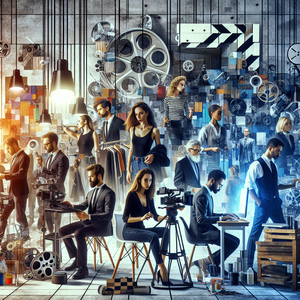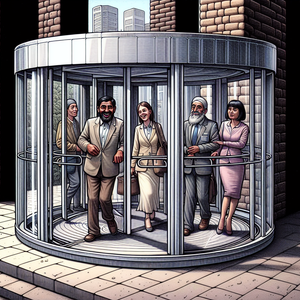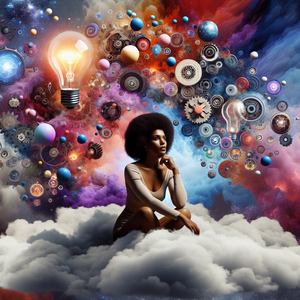The Unseen Architects: Engineering Careers in the World of Entertainment

Theme parks are a testament to the fusion of creativity and engineering. Engineers are responsible for designing rides that are not only thrilling but also safe and efficient. For example, the intricate calculations that go into designing a roller coaster require a robust understanding of physics and materials science. Structural engineers must ensure that the ride can withstand the forces of gravity, speed, and even weather conditions, while also considering the aesthetics that will captivate visitors. Interviews with professionals from renowned theme parks reveal the collaborative efforts involved in ride design. Sarah, a theme park engineer, explains, "We work closely with artists and designers to create an experience that’s visually stunning and mechanically sound. It's a delicate balance, but when it all comes together, it's incredibly rewarding." Such collaboration underscores the importance of engineers in realizing the creative visions of designers, ensuring that every twist and turn of a ride is both exhilarating and secure.
Creating Cinematic Wonders
In the film industry, engineers play a pivotal role in the creation of movie sets, special effects, and sound design. From constructing elaborate sets that transport viewers to different worlds to developing cutting-edge technology for visual effects, the contributions of engineers are crucial yet often go unnoticed. Consider the engineering feats behind films like "Avatar" or "Inception." Engineers collaborated with directors and visual effects teams to create groundbreaking technologies, such as motion capture and CGI, that transformed the way stories are told on screen. Mark, a visual effects engineer, shares, "We are problem solvers at heart. Our job is to figure out how to make the impossible possible, whether it’s creating a realistic alien world or simulating a massive explosion." This innovation not only enhances storytelling but also pushes the boundaries of what is possible in cinema, showcasing the essential role of engineers in shaping the future of film.
The Role of Engineers in Live Performances
Live performances, from concerts to theatrical productions, also rely heavily on engineering expertise. Sound engineers ensure that audiences experience crystal-clear audio while lighting engineers create immersive atmospheres that enhance the storytelling. For instance, consider the engineering behind a large-scale concert. Engineers must meticulously plan the placement of speakers, lighting rigs, and special effects to optimize the audience's experience. Lisa, a sound engineer for international tours, emphasizes, "It's about creating a seamless experience. Every decision impacts how the audience perceives the performance, and we aim to create an unforgettable moment." Such attention to detail not only elevates the performance but also ensures that every attendee leaves with a memorable experience.
Innovative Technologies Shaping the Future of Entertainment
The entertainment industry is constantly evolving, and engineers are at the forefront of this transformation. With advancements in virtual reality (VR) and augmented reality (AR), engineers are redefining how we interact with entertainment. The development of VR requires a multidisciplinary approach, combining software engineering, hardware design, and user experience expertise. Engineers are tasked with creating immersive environments that allow users to step into the stories being told. Tom, a VR engineer, states, "The potential of VR is limitless. We’re not just creating games; we’re creating experiences that can change how people perceive reality." This shift towards immersive experiences signals a new era in entertainment, one where engineering plays a central role in crafting the future of storytelling.
Engineering careers in the entertainment industry are as diverse as they are essential, yet they often remain in the shadows of the more visible roles. By shining a light on the contributions of engineers, we can begin to appreciate the intricate web of creativity and technical prowess that brings our favorite entertainment experiences to life. From the thrilling rides at theme parks to the mind-bending visuals of blockbuster films, engineers are the unseen architects who help shape the stories we cherish. As the industry continues to innovate and evolve, the role of engineers will only grow in importance, making this a dynamic and exciting field for future generations. Whether you’re an aspiring engineer or simply a fan of entertainment, understanding this intersection opens up a world of possibilities and appreciation for the artistry behind the scenes. With their technical skills and creative problem-solving abilities, engineers are not just builders; they are visionaries who help turn dreams into reality in the vibrant world of entertainment.
Theme Park Structural Engineer
Disney, Universal Studios, Six Flags
Core Responsibilities
Design and analyze structures for rides and attractions, ensuring safety and stability.
Collaborate with designers and artists to integrate aesthetic elements into structural designs.
Conduct regular inspections and assessments of existing structures to ensure compliance with safety regulations.
Required Skills
Proficiency in structural engineering software (e.g., AutoCAD, SAP2000).
Strong understanding of materials science and physics as they apply to ride design.
Experience in project management and teamwork within multidisciplinary environments.
Visual Effects Engineer
Industrial Light & Magic, Weta Digital, Pixar Animation Studios
Core Responsibilities
Develop and implement cutting-edge visual effects technologies for films and television.
Collaborate with creative teams to translate artistic visions into technical solutions.
Troubleshoot and optimize workflows for CGI and motion capture systems.
Required Skills
Proficiency in programming languages such as C++ or Python, and experience with software like Maya or Nuke.
Strong problem-solving skills and a keen eye for detail in visual storytelling.
Experience with real-time rendering and VR technology is a plus.
Sound Engineer for Live Events
Live Nation, AEG Presents, various touring production companies
Core Responsibilities
Design and implement sound systems for concerts, theater productions, and other live events.
Conduct sound checks and adjust audio levels to ensure optimal sound quality.
Collaborate with artists and production teams to create immersive auditory experiences.
Required Skills
Knowledge of audio engineering principles and experience with sound mixing consoles.
Proficiency in audio software such as Pro Tools or Ableton Live.
Strong communication skills and the ability to work under pressure during live performances.
Augmented Reality (AR) Software Engineer
Niantic, Magic Leap, Apple
Core Responsibilities
Develop AR applications that enhance user interaction with the physical and digital worlds.
Work with designers and UX experts to create user-friendly interfaces and experiences.
Optimize performance and ensure compatibility across various devices and platforms.
Required Skills
Proficiency in programming languages such as C# or JavaScript, particularly with AR development frameworks like Unity or ARKit.
Familiarity with 3D modeling and animation tools.
Strong understanding of user experience design principles and mobile development.
Ride Control Systems Engineer
Intamin, B&M, ride manufacturing companies
Core Responsibilities
Design and implement control systems for amusement park rides to ensure safe and efficient operation.
Conduct testing and troubleshooting of ride control software and hardware.
Collaborate with mechanical and electrical engineers to integrate systems within rides.
Required Skills
Experience with PLC programming and control systems design.
Proficiency in simulation software and knowledge of safety standards in the amusement industry.
Strong analytical skills and the ability to work collaboratively in a fast-paced environment.


